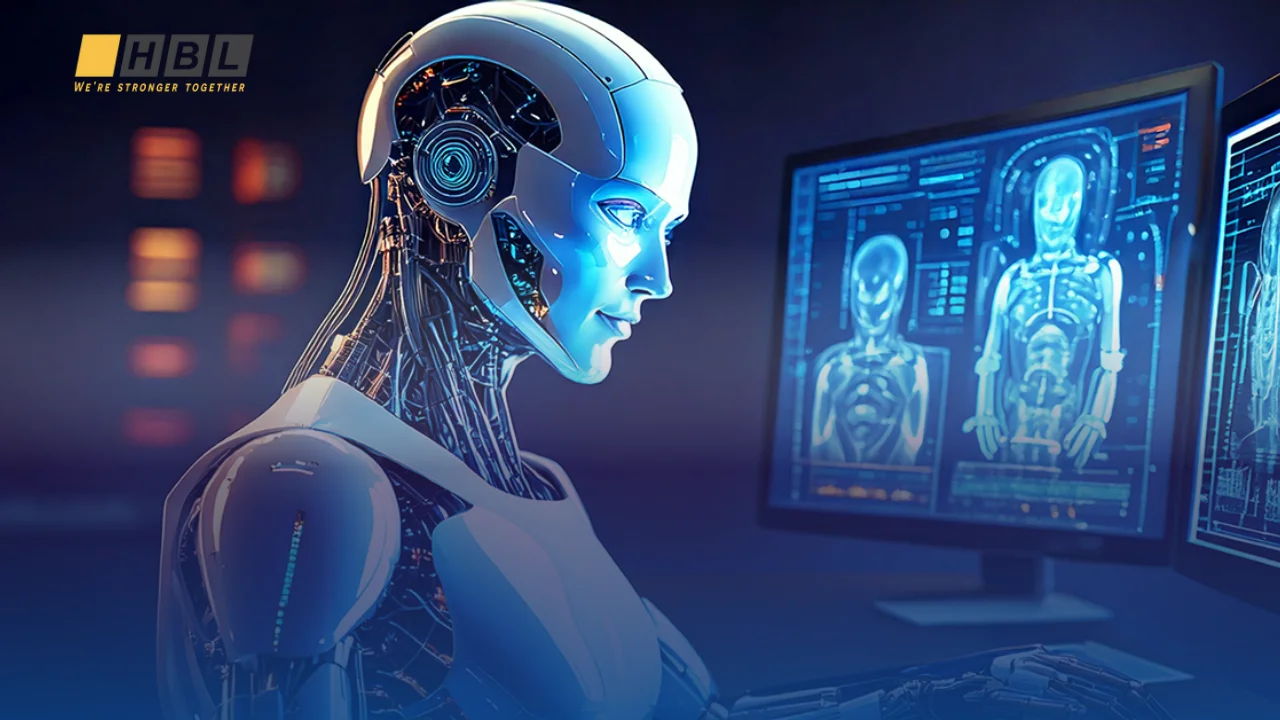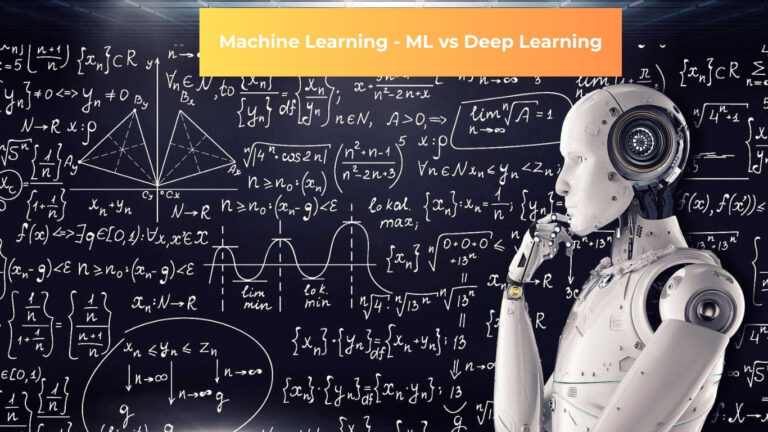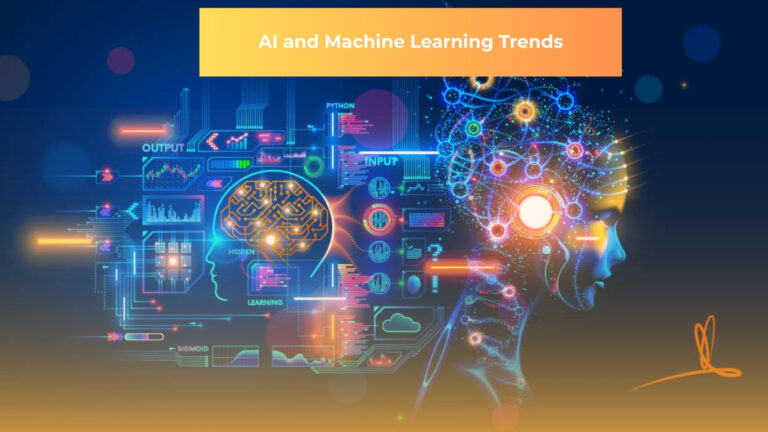The global healthcare sector stands at the precipice of a technological revolution. Emerging technology in healthcare is fundamentally reshaping how medical professionals diagnose, treat, and monitor patients, creating unprecedented opportunities for improved outcomes and operational efficiency.
With the global healthcare IT market projected to reach USD 981.23 billion by 2032, growing at a compound annual growth rate (CAGR) of 15.7% , healthcare organizations worldwide are increasingly embracing digital transformation to address mounting challenges and enhance patient care.
What is Emerging Technology in Healthcare?
Emerging technology in healthcare encompasses a broad spectrum of innovative digital solutions that leverage advanced computing, data analytics, artificial intelligence, and interconnected devices to revolutionize medical practices.

These technologies represent cutting-edge innovations that are transforming traditional healthcare delivery models, enabling more precise diagnostics, personalized treatment plans, and seamless patient monitoring.
The core emerging technologies in healthcare industry include artificial intelligence and machine learning, telemedicine and remote patient monitoring, Internet of Things (IoT) medical devices, blockchain technology, augmented and virtual reality applications, 3D bioprinting, robotics, and advanced wearable devices. These innovations are not merely supplementary tools but foundational elements reshaping the entire healthcare ecosystem.
Modern healthcare organizations are increasingly adopting what are emerging technologies in healthcare to address critical challenges including physician shortages, rising costs, aging populations, and the need for more accessible care delivery.
According to recent analysis, the global AI in healthcare market size reached USD 39.25 billion in 2025 and is projected to grow to USD 504.17 billion by 2032 , highlighting the rapid adoption of intelligent technologies across medical institutions.
How Emerging Technologies Transform Healthcare Operations
The implementation of emerging technologies in healthcare follows a systematic approach that integrates advanced digital solutions into existing clinical workflows while maintaining patient safety and regulatory compliance.
Digital Infrastructure Development
Healthcare organizations typically begin by establishing robust digital infrastructure capable of supporting advanced technologies. This includes cloud-based data storage systems, secure networks for medical device connectivity, and interoperable platforms that enable seamless data exchange between different healthcare systems.
The healthcare IT infrastructure serves as the foundation for implementing emerging technologies in healthcare industry solutions, enabling real-time data processing, secure patient information management, and scalable system architectures that can adapt to growing technological demands.
Technology Integration Process
The integration process involves several critical phases: assessment of existing systems, development of implementation roadmaps, staff training programs, pilot testing phases, and gradual rollout across healthcare facilities. Organizations must ensure compliance with healthcare regulations such as HIPAA while implementing new technological solutions.
Healthcare providers are leveraging what are emerging technologies in healthcare through phased implementation strategies that minimize disruption to patient care while maximizing the benefits of digital transformation. This approach typically includes establishing dedicated technology teams, creating change management protocols, and implementing continuous monitoring systems to track technology performance and patient outcomes.
Contact us now for a free consultation!
Advantages of Emerging Technology in Healthcare
The adoption of Emerging Technology in Healthcare delivers measurable gains across clinical outcomes and operational performance, supporting safer care and leaner processes.

Enhanced Diagnostic Accuracy and Speed
AI and machine learning now elevate diagnostic precision across specialties, reflecting the maturity of Emerging Technology in Healthcare in imaging, risk prediction, and workflow support. From earlier sepsis warnings to more accurate mammogram reads, clinicians gain faster insights that directly improve time-to-treatment decisions.
Continuous Monitoring and Early Intervention
Remote patient monitoring enables proactive care by streaming real-time vitals and context, making Emerging Technology in Healthcare essential for earlier interventions. Advanced analytics can flag deterioration hours sooner than traditional methods, reducing preventable escalations and improving continuity outside the hospital.
Improved Outcomes and Personalization
Precision medicine platforms tailor therapies to individual data and genetics, showing how Emerging Technology in Healthcare translates data into better efficacy and fewer adverse events. Wearables and IoT sensors extend visibility between visits, enabling timely coaching and targeted clinical follow-ups.
Operational Efficiency and Cost Reduction
Automation trims administrative load, accelerates documentation, and optimizes resource allocation, with Emerging Technology in Healthcare underpinning end-to-end efficiency. Virtual care and RPM reduce avoidable readmissions and unnecessary visits, compounding savings while maintaining quality standards.
Accessibility and Care Delivery
Telemedicine expands reach for underserved and rural populations, confirming the inclusivity of Emerging Technology in Healthcare in modern care models. Growth in telehealth and RPM adoption signals durable shifts toward hybrid, patient-centric pathways that scale without compromising safety or outcomes.
Challenges and Risks of Emerging Technology Implementation
Despite the significant benefits, emerging technology in healthcare implementation faces several critical challenges that healthcare organizations must address.
Cybersecurity and Data Privacy Concerns
Healthcare data breaches have become increasingly common, with cybersecurity representing one of the most pressing concerns for healthcare organizations adopting new technologies. The integration of IoT devices, cloud systems, and AI platforms creates multiple potential vulnerability points that require robust security measures.
Healthcare organizations must implement comprehensive cybersecurity frameworks including advanced encryption protocols, multi-factor authentication systems, secure communication channels, and regular security audits to protect sensitive patient information. The cost and complexity of maintaining adequate cybersecurity measures can be substantial, particularly for smaller healthcare organizations with limited IT resources.
Integration and Interoperability Issues
Many healthcare organizations struggle with integrating new technologies into existing legacy systems. Interoperability challenges between different technology platforms can create data silos, workflow disruptions, and reduced efficiency gains. Healthcare providers must invest significant resources in system integration, staff training, and workflow redesign to successfully implement emerging technologies.
The fragmented nature of healthcare technology vendors and varying standards across different systems create additional complexity for organizations attempting to create cohesive digital healthcare ecosystems.
Regulatory Compliance and Ethical Considerations
Emerging technologies in healthcare must comply with stringent regulatory requirements while addressing ethical concerns related to AI bias, algorithmic transparency, and patient consent. Healthcare organizations must navigate complex regulatory landscapes that vary by region and continue to evolve as new technologies emerge.
The implementation of AI-driven diagnostic tools, for example, requires extensive validation processes, regulatory approval, and ongoing monitoring to ensure patient safety and clinical efficacy. Organizations must also address concerns about AI replacing human judgment in critical medical decisions while maintaining appropriate levels of physician oversight and patient care quality.
Case Studies: Successful Implementation of Healthcare Technologies
AI Sepsis Early Warning at UC San Diego Health
An academic health system deployed a deep learning model (COMPOSER) integrated into the EHR to predict sepsis and trigger a nurse-facing Best Practice Advisory in two emergency departments, using a before-and-after quasi-experimental design across 6,217 adult septic patients from 2021–2023, which provides robust real-world evidence for emerging technology in healthcare at scale.
The intervention significantly improved time to antibiotics and adherence to bundles, with associated gains in survival and quality of care for septic patients, underscoring that AI-driven decision support can deliver measurable clinical benefits when embedded in workflow.
Download our exclusive IT & AI playbook
As an emerging technology in healthcare, this implementation highlights three success factors: end-user–centered alert design, prospective monitoring of false positives, and governance for iterative model updates.
- Technology: Deep learning sepsis prediction (EHR-integrated BPA).
- Setting: Two EDs, large US academic system.
- Outcomes: Faster antibiotics, improved quality metrics, survival benefits in the post-period.
- Why it matters: Demonstrates that emerging technology in healthcare can translate from algorithmic accuracy to bedside impact when implemented with workflow alignment and change management.
Contact HBLAB today for a comprehensive consultation!
Wearable + Machine Learning for Pediatric Sepsis in Bangladesh
A prospective study in Dhaka ICU evaluated a low-cost wearable device streaming continuous vitals to a smartphone, paired with ML models to predict advanced sepsis without lab tests, representing frugal emerging technology in healthcare for LMICs.
The system detected deterioration hours earlier than clinical documentation, and demonstrated feasibility of continuous monitoring with minimal clinician input—offering a scalable path to critical care augmentation in resource-constrained settings through emerging technology in healthcare.
Findings support future development of a smartphone-based early warning and telemetry platform for pediatric sepsis, enabling equitable access to critical monitoring capabilities.
- Technology: Wireless wearable, smartphone gateway, ML risk models.
- Setting: Pediatric ICU, LMIC, real-world feasibility.
- Outcomes: Early detection of advanced sepsis, feasible continuous monitoring, low-cost pathway.
- Why it matters: Shows how emerging technology in healthcare can expand critical care capacity and timeliness beyond high-resource systems.
Telemonitoring Cuts Readmissions in Heart Failure/COPD
A comprehensive systematic review led by Mayo Clinic and Johns Hopkins researchers examined telemedicine with remote telemonitoring in heart failure and COPD, finding consistent reductions in 30-day readmissions in targeted populations, validating remote care as a mature emerging technology in healthcare.
Complementing this, a remote patient monitoring case study program for CHF patients documented lowered readmissions and cost of care using connected devices and a web-based clinical interface—providing operational evidence for emerging technology in healthcare in chronic care pathways.
Additional observational data show home digital monitoring reduced hospital readmissions and ED visits among high-risk patients, reinforcing the health system-level value of telemonitoring as an emerging technology in healthcare.
- Technology: Telemedicine plus RPM (BP cuffs, pulse oximetry, scales, integrated apps).
- Setting: Multicenter literature base; programmatic deployment in CHF.
- Outcomes: Reduced 30-day readmissions, lower costs, improved self-management.
- Why it matters: Demonstrates that emerging technology in healthcare can reliably improve chronic disease outcomes when combined with structured care models.
AI-Enhanced Robotic Surgery: Efficiency and Outcomes
A 2025 systematic review synthesizing 25 recent studies shows AI-assisted robotic surgery improves procedural success, reduces operative time, and shortens length of stay across specialties, confirming the maturity of robotic platforms as emerging technology in healthcare with measurable clinical ROI.
Evidence includes pediatric robotic series with lower postoperative pain and shorter stays, and urologic oncology reviews reporting reduced positive surgical margins and better functional preservation, demonstrating that emerging technology in healthcare is advancing precision and recovery concurrently.
High-level comparative trials in colorectal cancer (REAL trial) further clarify indications and short-term outcomes versus laparoscopy, informing evidence-based adoption of emerging technology in healthcare for oncologic surgery.
- Technology: AI-augmented robotic systems (vision, automation, decision support).
- Setting: Multi-specialty, global studies, pediatric to adult.
- Outcomes: Fewer complications, 10–25% time savings, 1–3 days shorter stays in several reports.
- Why it matters: Confirms that emerging technology in healthcare can elevate surgical quality while optimizing resource utilization.
Additional credible evidence for AI sepsis CDS shows median 6-hour lookahead with high specificity to reduce alert fatigue, strengthening the business case for clinically integrated AI as emerging technology in healthcare.
Reviews also synthesize how EHR-based versus continuous-monitoring models complement each other to improve early detection and tailor implementation by setting, guiding safe scale-up of emerging technology in healthcare.
Role of Emerging Technologies in Future Healthcare
Emerging technologies in healthcare industry are positioned to drive fundamental changes in how healthcare is delivered, managed, and experienced by patients and providers alike.
Artificial Intelligence and Machine Learning Integration

AI technologies are expanding beyond diagnostic applications to encompass comprehensive clinical decision support, predictive analytics, and automated administrative processes. Machine learning algorithms are being integrated into electronic health records systems to provide real-time clinical recommendations, drug interaction warnings, and personalized treatment suggestions.
The global AI in healthcare market is experiencing unprecedented growth, with North America holding approximately 54% of the market share and expected to reach USD 112.9 billion by 2030. This growth reflects the increasing recognition of AI’s potential to transform healthcare delivery across all clinical specialties.
Advanced Robotics and Automation
Robotic systems are becoming increasingly sophisticated in surgical applications, rehabilitation therapy, and elderly care. Robotic-assisted surgeries enable more precise procedures with reduced complications and faster recovery times. The integration of AI with robotic systems is creating new possibilities for autonomous medical procedures and intelligent patient care assistance.
3D bioprinting technology is advancing toward the creation of functional organ tissues and personalized medical implants. Researchers are developing soft robotic systems capable of 3D bioprinting directly inside the human body, potentially revolutionizing surgical repair and regenerative medicine approaches.
Blockchain and Decentralized Healthcare Systems
Blockchain technology is emerging as a solution for secure healthcare data management, enabling tamper-proof patient records, secure medical device communication, and transparent pharmaceutical supply chain tracking. Healthcare organizations are exploring blockchain applications for insurance claim processing, clinical trial data integrity, and patient consent management.
The decentralized nature of blockchain systems offers potential solutions to interoperability challenges while maintaining high levels of data security and patient privacy protection.
When to Invest in Emerging Healthcare Technologies
Healthcare organizations should prioritize emerging technology in healthcare investments based on strategic operational needs, patient population characteristics, and long-term sustainability goals.
Strategic Implementation Timing
Organizations should consider technology investments when expanding to new locations, facing regulatory compliance changes, seeking competitive advantages in their markets, or addressing specific operational inefficiencies. Healthcare providers experiencing high patient volumes, chronic disease management challenges, or resource allocation issues often benefit most from technology implementation.
The optimal timing for technology adoption typically aligns with major operational changes, such as facility expansions, system upgrades, or strategic partnership developments. Organizations should evaluate their current technology infrastructure, staff readiness, and financial resources before committing to significant technology investments.
Technology Selection Criteria
Healthcare organizations should prioritize technologies that address their most pressing operational challenges while offering measurable returns on investment. Key selection criteria include scalability, integration capabilities, regulatory compliance features, vendor stability, and long-term support availability.
Organizations must also consider their patient population needs, clinical specialty requirements, and existing technology ecosystem compatibility when selecting emerging technologies in healthcare solutions.
HBLAB – Your Trusted Partner in Healthcare Technology Development
In the rapidly evolving landscape of emerging technology in healthcare, selecting the right development partner is crucial for successful digital transformation. HBLAB stands at the forefront of healthcare software development, combining deep technical expertise with comprehensive understanding of healthcare industry requirements to deliver transformative technology solutions.
Why Healthcare Organizations Choose HBLAB:
With over 10 years of specialized experience in healthcare software development, HBLAB has established itself as a trusted technology partner for healthcare organizations worldwide. Our team of 630+ IT professionals, including 30% senior-level experts with over 5 years of experience in complex healthcare projects, brings unparalleled expertise to every engagement.

Our CMMI Level 3 certification ensures the highest standards of process excellence and information security, critical requirements for healthcare technology development. This certification demonstrates our commitment to quality management, risk mitigation, and regulatory compliance throughout the software development lifecycle.
Comprehensive Healthcare Technology Expertise:
HBLAB specializes in developing cutting-edge healthcare solutions including AI-powered diagnostic tools, remote patient monitoring platforms, electronic health record systems, telemedicine applications, and IoT medical device integration. Our AI expertise since 2017, strengthened by strategic partnerships with institutions like VNU’s Institute for AI, positions us at the forefront of healthcare artificial intelligence development.
We offer flexible engagement models including offshore, onsite, and dedicated team arrangements, allowing healthcare organizations to scale their technology initiatives according to their specific needs and budgets. Our global delivery model provides cost efficiency up to 30% lower than local rates while maintaining world-class quality standards.
Proven Track Record in Healthcare Innovation:
Our multilingual teams ensure strong English proficiency and transparent communication throughout project development, essential for successful healthcare technology implementations. We have successfully delivered projects across diverse healthcare sectors including hospitals, medical device companies, telemedicine platforms, and digital health startups.
From initial consultation and system design to development, testing, and ongoing maintenance, HBLAB provides comprehensive support for healthcare organizations embarking on digital transformation journeys.
Conclusion
Emerging technology in healthcare represents a transformative force reshaping the global medical landscape. From AI-powered diagnostic systems and remote patient monitoring platforms to advanced robotics and blockchain security solutions, these technologies are delivering unprecedented improvements in patient outcomes, operational efficiency, and healthcare accessibility.
The rapid growth of the healthcare technology market, with projections reaching nearly USD 1 trillion by 2032, reflects the increasing recognition of digital innovation’s critical role in addressing healthcare challenges. Healthcare organizations that strategically implement emerging technologies in healthcare industry solutions are positioning themselves to deliver superior patient care while achieving sustainable operational advantages.
As the healthcare sector continues its digital transformation journey, the successful integration of emerging technologies will depend on strategic planning, robust cybersecurity measures, comprehensive staff training, and partnerships with experienced technology providers. Organizations that embrace these innovations today will be best positioned to meet the evolving needs of patients and healthcare systems in the coming decades.
Frequently Asked Questions
1. What is the newest technology in healthcare?
The newest technologies in healthcare include generative AI applications, advanced wearable health devices with real-time monitoring capabilities, 3D bioprinting for tissue engineering, quantum computing applications for drug discovery, and sophisticated robotic surgery systems with AI integration.
2. What are the five emerging technologies?
The five primary emerging technologies transforming healthcare are: artificial intelligence and machine learning for diagnostics and treatment optimization, Internet of Things (IoT) medical devices for continuous monitoring, telemedicine and remote patient care platforms, blockchain technology for secure data management, and advanced robotics for surgical procedures and patient care.
3. What are the top 3 trends in the healthcare industry?
The top three healthcare industry trends are: AI-driven personalized medicine and predictive analytics, comprehensive digital health ecosystems integrating multiple technologies, and value-based care models supported by advanced data analytics and remote monitoring capabilities.
4. What technology has the greatest impact on healthcare?
Artificial intelligence currently has the greatest impact on healthcare, revolutionizing diagnostics, treatment planning, and operational efficiency. AI applications span medical imaging analysis, predictive analytics, clinical decision support, and administrative automation, with the global AI healthcare market expected to reach over USD 500 billion by 2032.
5. What is the biggest technology challenge facing healthcare today?
The biggest technology challenge facing healthcare is cybersecurity and data privacy protection. With increasing digitization and connected medical devices, healthcare organizations face growing threats from cyberattacks, data breaches, and system vulnerabilities that could compromise patient safety and confidential medical information.
6. How is AI currently used in healthcare?
AI is currently used in healthcare for medical imaging analysis and diagnosis, predictive analytics for patient risk assessment, clinical decision support systems, automated administrative tasks, drug discovery and development, personalized treatment planning, and real-time patient monitoring through IoT devices.
AI cannot replace doctors but serves as a powerful tool to augment medical professionals’ capabilities. AI excels at data analysis, pattern recognition, and routine tasks, but human judgment, empathy, clinical experience, and complex decision-making remain irreplaceable elements of quality healthcare delivery.
8. When was AI first used in healthcare?
AI was first introduced in healthcare during the 1960s and 1970s with early expert systems for medical diagnosis. However, modern AI applications in healthcare began gaining significant traction in the 2010s with advances in machine learning, big data analytics, and improved computing power.
9. What is the future of AI in healthcare?
The future of AI in healthcare includes fully integrated clinical decision support systems, autonomous diagnostic platforms, personalized precision medicine, real-time patient monitoring with predictive interventions, AI-powered drug discovery, and comprehensive healthcare automation while maintaining human oversight for critical medical decisions.
CONTACT US FOR A FREE CONSULTATION
Read More:
Will AI Replace Doctors? 6 Proven Facts and Limits
Will Cybersecurity Be Replaced by AI? Bold Trends Shaping Jobs in 2025
Quality Automotive Services Market (2025): Comprehensive Industry Analysis and Statistics




